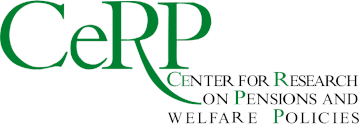by Riccardo Calcagno, Maela Giofré, Maria Cesira Urzì-Brancati; CeRP WP 157/16
Abstract
Using a survey of clients from one of the largest Italian banks, we investigate whether investors exert some form of control over the quality of the recommendations they receive, and if so which one. We find that investors with low level of trust seek financial counselling, but decide autonomously. Within this subgroup of investors, those with high self-assessed financial competence are more likely to control the quality of the advice. We also observe that their test-based degree of financial literacy affects the way they discipline the advisors. Investors with high financial literacy monitor the advisor’s activity by themselves. Instead, investors with low financial literacy are more likely to search for a second expert’s opinion which confirms the recommendations previously received, as for credence services. Our findings suggest that access to different financial institutions is beneficial especially for investors with poor financial literacy.
Published: March 2016

